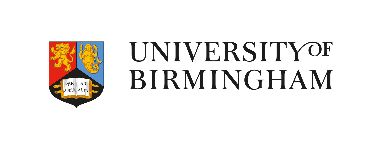Knowing the Secret Police
Knowing the Secret Police: Secrecy and Knowledge in East German Society
This project explores questions of secrecy and power in relation to the East German Secret Police, the Stasi, and East German society. It overturns the approach of existing research to ask not what the ‘all-powerful’ Stasi knew about society, but what and how East Germans knew about the ‘secret police’. This project investigates how different kinds of knowledge were circulated through social, religious, political and literary networks. It puts these explorations into conversation with the study of how such knowledge was represented in the literature at the time of the GDR and how it was reflected on in literature written after the Stasi-archives opened. In doing so it pays heed to how information and understandings also passed across the inner-German border. The project is based on the hypothesis that navigating the 'public secret' of the Stasi relied on varied forms of political agency and gave rise to many kinds of political identity. As a result, it aims to challenge narratives about former citizens of the GDR as 'moulded' by the 'SED-dictatorship' and lacking the civic virtues necessary to participate in contemporary democratic life. The project includes three strands (social networks; literary representations and memory work) and four studies within the social network study.
The project involved key German project partners: the Federal Agency for Civic Education in Bonn (BpB) and a local branch of the Federal Agency for Stasi-files in Magdeburg (BStU). It is funded by the Arts and Humanities Research Council (AH/R005915/1).
Follow us on Twitter: @SecretsStasi

Project Strands

Project Strands
Social Networks
1) Social: at the workplace with a focus on former Bezirk Gera.
2) Religious: within the German Protestant Church in the former Kirchenprovinz Saxony
3) Political: antifascist activists
4) Literary: networks of published literary authors
Literary Representations
1) Representations as Knowledge: literature at the Archiv für unterdrückte Literatur
2) Retrospective Representations: biographical works of Betroffene since the opening of the Stasi-files.
Memory Work
This strand concerns engagement with stakeholders, policymakers, schools, and the interested public in relation to our research and findings.
Project Team
Project Team
Dr Anselma Gallinat (Newcastle University, anselma.gallinat@newcastle.ac.uk): PI; Lead religious network study and social network study.
Dr Grit Wesser (Newcastle University, grit.wesser@newcastle.ac.uk): Postdoctoral Fellow; Religious network study and social network study.
Dr Joanne Sayner (Newcastle University, joanne.sayner@newcastle.ac.uk): Co-I; Lead project strand memory work; Political network study.
Dr Alexander Brown (University of Leeds): Project strand memory work; Political network study.
Professor Sara Jones (University of Birmingham, S.Jones.1@bham.ac.uk): Co-I, Lead project strand literary representations; Literary network study.
Dr Betiel Wasihun (University of Oxford) Project strand literary representations; Literary network study.
Dr Tara Talwar Windsor (University of Cambridge): was Project strand literary representations; Literary network study.
Contact us at: anselma.gallinat(at)newcastle.ac.uk


